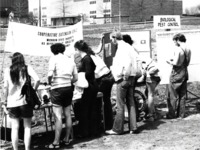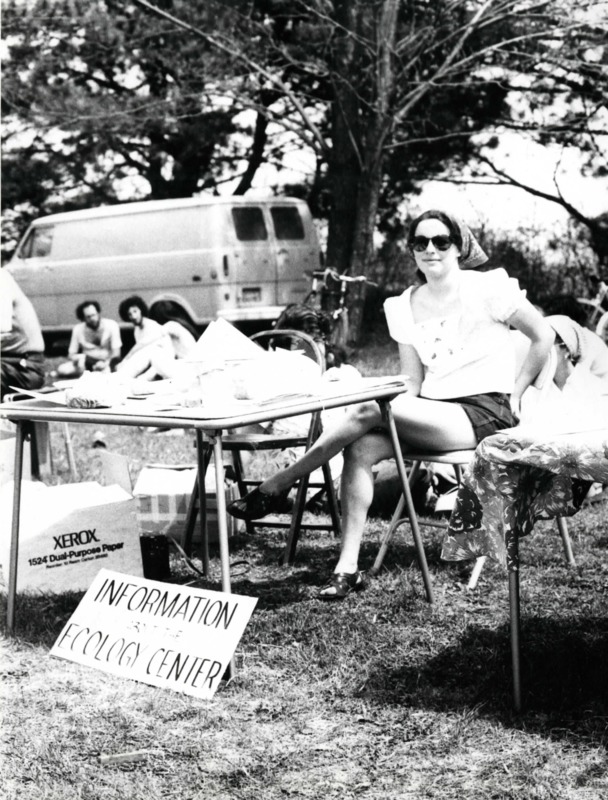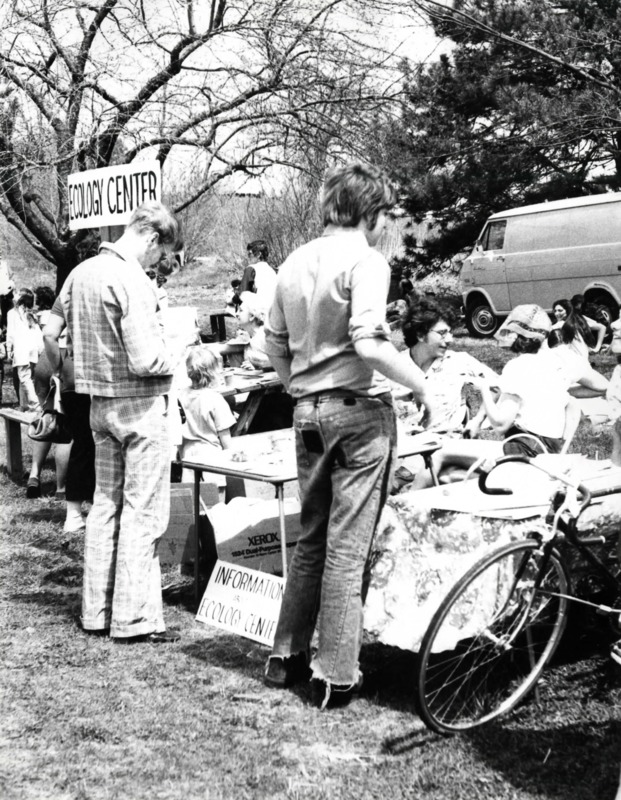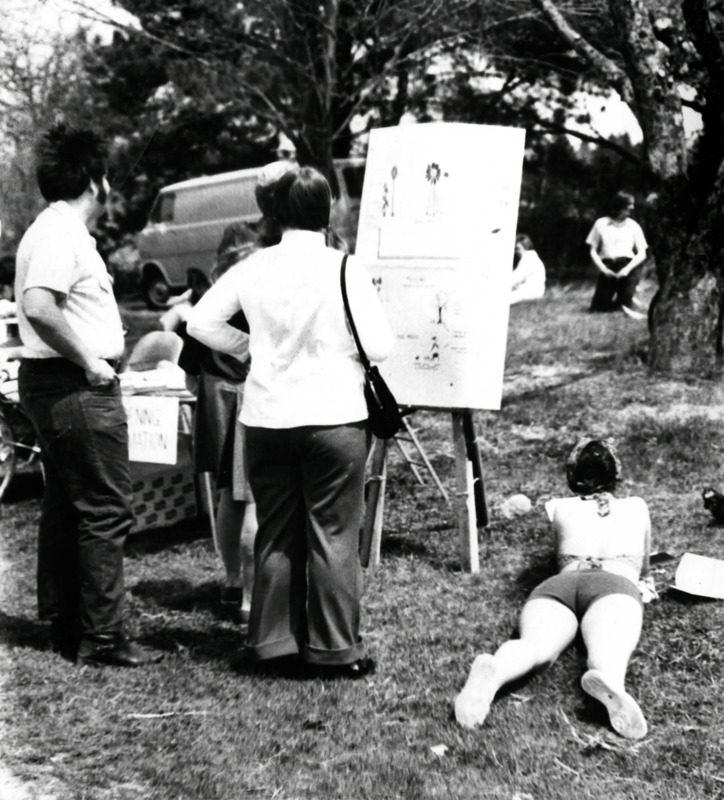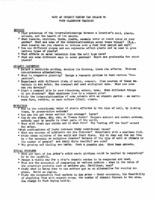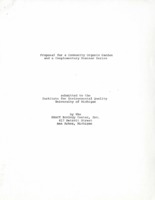See a related article from the Ecology Center's website, Sharing the Bounty: Community Organic Gardening and Healthy Local Food
Cultivating Environmental Awareness
At the beginning of the 1970s, the public widely believed chemical pesticides, herbicides, and inorganic fertilizers were essential to growing a healthy garden. The Community Organic Garden, therefore, needed to show people that environmentally-friendly alternatives existed and worked. To do so would require an extensive educational program. In 1971, the Ecology Center received a grant from the U.S. Department of Health, Education and Welfare, to use on a community environmental education project. The Ecology Center decided to use the funds to supplement the organic garden project with an educational program, including a series of field trips to the project, seminars by organic gardening experts from across the country, and preparation of written material on garden techniques.
Rite o' Spring Festival
The Garden also held several events throughout the year to attract visitors to the Garden and to disseminate information about organic gardening techniques. In late April, to kick off the growing season, the Ecology Center hosted an annual Rite of Spring festival, the idea for which came from ancient tradition. The spring festival featured free food, flower and tree seedlings, and entertainment, including live country music and animals. Local gardening experts used displays and exhibits to teach visitors about topics, such as spotting insects, composting and mulching, canning produce, eating edible wild plants, and buying from local natural food stores. Hundreds of people attended the event each year and left with fresh food and knowledge to apply to their own gardens.
Classroom Materials
Since its beginning, the Ecology Center has partnered with local schools and teachers in order to improve environmental education and to train Ann Arbor's next generation of environmentalists. As the diversity of garden volunteers demonstrates, the organic gardening project was truly an opportunity for people of all ages. Many young people, including local youth organizations such as Boy Scouts and Girl Scouts, were eager to help. In 1973, John Remsberg, the garden manager, created a classroom guide for enthusiastic teachers to take the lessons of the garden into their classrooms. As the guide exemplifies, the Center believed that the garden could not only teach young students about organic gardening and plant ecology but also about natural history and the social problems associated with waste. The Center also sent staff members to talk to classes and to make recommendations on their school gardens.
Gardening Seminar Series
During the garden's first year, the Ecology Center held a bi-weekly series of seminars entitled "Living with the Earth" to supplement the lessons volunteers learned from the farming of the garden with information from experts from across the country. This seminar series would expand upon organic techniques learned at the garden and detail the potential of organic farming as a solution to environmental problems. The Ecology Center worked diligently to maintain close relationships with other ecology centers, environmental groups, university professors, local organic food stores and farmers, which aided their efforts to organize the seminars.

